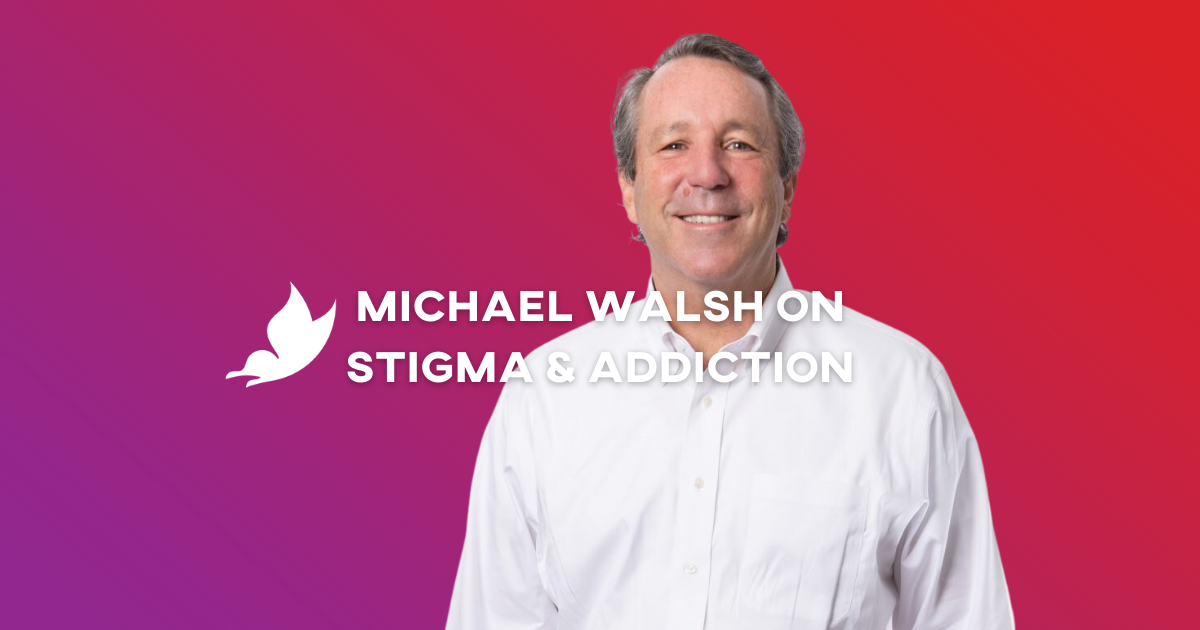As the chill of October rolls in, bringing with it the promise of pumpkin patches, haunted houses, and costume parties, many embrace the thrills of the Halloween season. Yet, amid these delights, many individuals also commit to Sober October to celebrate the month free from alcohol and drugs. But the decision to abstain is not the only challenge they face. There’s the lingering stigma of addiction, a shadow that casts misconceptions and prejudices, making an already tough journey even more daunting.
A Personal Perspective on Addiction’s Evolving Image
Enter Michael Walsh, Director of Clinical Outreach and a beacon in the recovery community. With over 25 years of personal sobriety and professional dedication, he’s witnessed firsthand the changing perceptions of addiction.
“It’s gotten more mainstream to be in recovery,” Walsh remarked, “but there’s still a lack of understanding and acceptance in certain circles. The media has played its part in both helping and hindering these perceptions.”
In this blog, we’ll dive deep into the heart of addiction stigma, exploring its nuances and origins. Through Walsh’s insights and real-world experiences, we’ll unmask the stereotypes that persist and offer guidance for those navigating their Sober October amid the specters of judgment.
Listen to a past episode of the Landmark Recovery Podcast on stigma.
Stigma Through the Years: A 25-Year POV
Over the last 25 years, the perception around addiction recovery has transformed, with progress evident in many ways.
Walsh observed, “It’s gotten a lot more mainstream to be in recovery.”
Despite the progress, he quickly highlighted the ongoing challenges, noting certain regions, social circles, and families where misconceptions about addiction linger. The media, though a double-edged sword, has also played a significant role in shaping these perceptions.
“Overall, we’ve done a good job… making [recovery] more acceptable and more mainstream,” Walsh said, but not without pointing out the negatives. “Some TV shows, movies, and media haven’t shed a good light on it, making it seem awful.”
Such representations can color the perception of those unfamiliar with addiction and recovery, leading them to develop negative attitudes. Portrayals often matter. As Walsh explained, if a movie character with addiction is always portrayed negatively, it can cement stereotypes.
“A family that doesn’t understand addiction and recovery is going to think that addicts always get in trouble,” Walsh said. Indeed, our societal fascination with tragedies only deepens the issue.
Walsh also noted, “We seem to put a lot of attention on the things that cause stigma, like deaths, homelessness, and crime.” Meanwhile, positive recovery stories often go untold due to fear and shame.

Shame and stigma can influence someone’s choice to hide from family or friends
“Someone like me, who’s achieved so much in 25 years, doesn’t make the paper’s front page.”
Triumphant tales of those who conquer their demons and thrive rarely receive the attention they deserve. Polite society often still frowns upon those seeking absolution through recovery and a second chance. We would do well to extend collective forgiveness and understanding to those who have fallen prey to substances that so effectively hijack the human reward system. Addiction is never a choice made purely out of malice or free will. Why should we continue to express condemnation for a disease from which a community member can recover? An opposing perspective that demolishes the stigma can be deeply empowering for those who need it.
The Role of Profession in Perceiving Recovery
Transitioning from how stigma has evolved, it’s vital to understand that perceptions also vary based on one’s profession. Walsh shed light on this.
“If somebody’s a politician or a banker, there’s probably more stigma,” he said.
For those not in high-profile roles, discussions around recovery are less frequent, but it doesn’t mean they are exempt from judgment. However, shining a spotlight on recovery has its pros and cons.
“It breaks some of the stigma,” Walsh noted. But for those in sensitive professions or high-profile roles, the expectations differ. There’s an anticipatory watch for their downfall.
Delving deeper, Walsh shared his own perspective.
“My first two years, I felt uncomfortable,” he admitted. Then, he was in a different profession, where acceptance was scant. Fear of professional setbacks kept him silent about his recovery journey. Yet, over time, as the focus on recovery has grown, his personal and professional experiences in the field have made him an asset.
Walsh emphasized the importance of discretion, especially in early recovery stages. The anonymity provided by 12-step recovery programs like Alcoholics Anonymous serves a purpose.
“It ensures people don’t jeopardize the credibility of the recovery process by premature publicity,” Walsh explained. He further added, “Millions in recovery cross our paths daily, yet we remain oblivious.”
Expounding on workplace dynamics, Walsh stressed the importance of open discussions. Understanding recovery varies person-to-person. He personally values professionals in recovery, stating, “I love having a physician who’s in recovery.”

Stigma is a powerful motivator in someone’s decision to seek help or publicly declare their own recovery
Navigating Professional Waters: Recovery and the Role of Your Job
We often discuss addiction and recovery in the context of personal life, but what happens when we bring it to the workplace? Does your profession dictate how others view your recovery journey? Walsh shed light on this intersection between career and recovery.
“If somebody’s a politician or a banker or some of those professions, there’s probably more stigma,” Walsh said.
This makes you wonder, right? Is it harder for someone in the public eye to talk about recovery than, say, someone in a more behind-the-scenes role?
“For many of us, when we’re in not as high-profile professions, it’s not talked about as much,” he continued.
But it’s not all doom and gloom! The effort put into breaking the stigma surrounding addiction is commendable.
“It’s kind of a double-edged sword where you’ve got the good part of the stigma being broken by putting a spotlight on this thing,” Walsh shared. “But you’ve also got pockets of it that are tougher to navigate because you’re in a sensitive profession.”
Remember Walsh’s early days in recovery? He was in a different profession, and it wasn’t easy.
“My first two years, I felt a little uncomfortable. I kept it quiet because I feared losing my livelihood,” Walsh revealed.
But as the years passed, things started to shift.
“There’s been a lot more spotlight on treatment and recovery over the last 25 years, making my experience both personally and professionally more valuable,” he reflected.
Anonymity plays a crucial role, especially when you’re in the early stages of recovery.
“If I lived in a small town and I was the bank’s president, I probably would still be quiet about [early recovery],” Walsh advised. “We don’t wanna be out there tooting our horns and then have something happen. People might think recovery doesn’t work. Here’s the thing, though. Millions of Americans walk by you daily that are in recovery, and you’d never know.”
It’s essential to have conversations about recovery in the workplace, irrespective of the profession.
“Recovery means a lot of different things to different people,” Walsh said.
Learn More About How You Can Achieve Recovery
Breaking free from addiction can be difficult, especially if you’re in a place where it can jeopardize your career or cause people to turn away from you. This is why ending the stigma of addiction is so important.
If you need professional, expert help to achieve recovery, don’t wait to reach out. Landmark Recovery is here. Call (888) 448-0302 to speak with admissions around the clock. We’re on a mission to save a million lives in one hundred years, all while breaking the stigma of addiction.

Choose Recovery Over Addiction
We're here 24/7 to help you get the care you need to live life on your terms, without drugs or alcohol. Talk to our recovery specialists today and learn about our integrated treatment programs.




